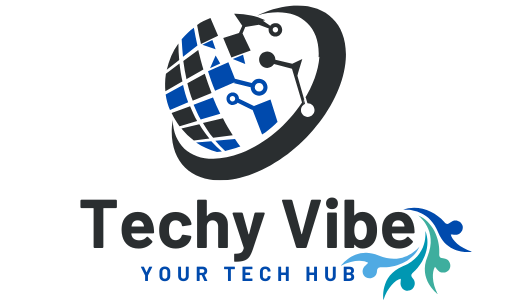Introduction
The RTI Scheduler is a transformative tool designed to simplify scheduling complexities in educational institutions. By automating timetable creation, attendance tracking, and resource allocation, it empowers schools to focus on fostering student success rather than administrative chaos. This article explores RTI Scheduler features, benefits, and practical implementation strategies, supported by real-world examples and actionable insights.
Benefits for Educational Stakeholders
- For Administrators:
- Automates repetitive tasks like timetable generation and exam coordination, freeing up time for strategic planning.
- Centralizes data for attendance, grades, and resource usage, enabling data-driven decisions 6.
- For Teachers:
- Simplifies grading and attendance logging, allowing more focus on lesson planning.
- Facilitates collaboration through shared calendars and instant notifications 4.
- For Students:
- Provides a unified platform to track assignments, deadlines, and exam dates.
- Reduces stress by offering clarity on daily schedules and room changes 6.
- For Parents:
- Offers real-time access to academic updates, fostering transparency and involvement 6.
Implementation Guide: Steps to Success
- Assess Institutional Needs:
- Identify pain points (e.g., frequent timetable clashes, poor attendance tracking).
- Involve teachers, students, and IT staff in requirement gathering .
- Customize the Platform:
- Input course catalogs, teacher availability, and room capacities into the system.
- Enable integrations with existing tools like Google Classroom or Microsoft Teams.
- Train Users:
- Conduct workshops for staff and students to navigate features like exam scheduling or lab bookings.
- Provide cheat sheets for common tasks (e.g., submitting attendance).
- Monitor and Optimize:
- Use built-in analytics to track attendance trends or resource utilization.
- Gather feedback to refine workflows (e.g., adjusting notification timings).
Case Study: Jacksonville University’s Transformation
Jacksonville University adopted the RTI Scheduler in 2024 to address scheduling conflicts in its 50-building campus. Results included:
- 30% Reduction in Timetable Errors: Automated conflict detection resolved overlaps in STEM lab sessions.
- 20% Improvement in Attendance: Real-time tracking and parent notifications increased student accountability.
Comparison Table: RTI Scheduler vs. Competitors
| Feature | RTI Scheduler | PowerSchool SIS | ASC Timetables | Untis |
|---|---|---|---|---|
| Core Focus | Specialized academic scheduling & automation | Comprehensive Student Information System | Timetable-centric scheduling | School scheduling & resource planning |
| Timetable Automation | AI-driven, conflict-free schedules | Basic automation (requires manual tweaks) | Advanced algorithms for complex timetables | Robust, rule-based scheduling |
| Attendance Tracking | Real-time, integrated with grading | Built-in attendance module | Limited to timetable data | Basic attendance logging |
| Exam Scheduling | Auto-allocates halls, invigilators | Manual setup required | Exam scheduling add-on ($ extra) | Integrated exam planning |
| Parent Communication | In-app alerts, progress updates | Parent portal access | No direct parent features | Parent app integration |
| Resource Booking | Digital lab/equipment reservations | Limited to classroom assignments | Focused only on timetables | Room/equipment booking |
| Customization | High (supports IEPs, special needs) | Moderate (tailored to district needs) | High (for complex timetables) | Moderate (flexible rule sets) |
| Integration | Google Classroom, MS Teams, LMS | Broad (SIS, LMS, state systems) | Limited to calendar exports | Basic LMS/calendar sync |
| Pricing (Annual) | Starts at $499 (scales with size) | $2,000+ (district-wide licenses) | $1,500+ (add-ons extra) | $1,800+ (modules sold separately) |
Key Takeaways
- RTI Scheduler excels in automation and parent-teacher engagement at a lower cost.
- PowerSchool SIS suits districts needing all-in-one SIS solutions but lacks specialized scheduling.
- ASC Timetables is ideal for ultra-complex timetables but misses resource booking and communication tools.
- Untis balances scheduling and resource planning but requires add-ons for full functionality.
This table highlights RTI Scheduler’s niche as a cost-effective, specialized tool for schools prioritizing automation and stakeholder collaboration.
Future Trends in Academic Scheduling
- AI-Driven Predictions:
- Anticipate scheduling bottlenecks using historical data (e.g., peak lab usage hours).
- Mobile-First Access:
- Develop student-friendly apps for on-the-go schedule updates.
- Global Scalability:
- Support multi-language interfaces for international institutions.
FAQs: Addressing Common Queries
Q: Can RTI Scheduler sync with Google Calendar?
A: Yes, it integrates seamlessly with Google Calendar and Outlook for unified planning.
Q: Is student data secure on this platform?
A: RTI Scheduler uses AES-256 encryption and complies with FERPA regulations.
Q: How does it handle last-minute room changes?
A: Admins can update room allocations instantly, triggering automatic notifications to affected users.
Q: What’s the cost for small schools?
A: Pricing scales with institution size, starting at $499/year for schools with <500 students.
Q: Does it support special education needs?
A: Custom tags can flag accommodations (e.g., extended exam time) for tailored scheduling.
Conclusion: Elevating Education Through Innovation
The RTI Scheduler transcends traditional scheduling tools by fostering collaboration, transparency, and efficiency. Whether streamlining exam logistics or empowering parental involvement, it addresses the evolving needs of modern education. Institutions adopting this tool not only save time but also create environments where students and educators thrive.



